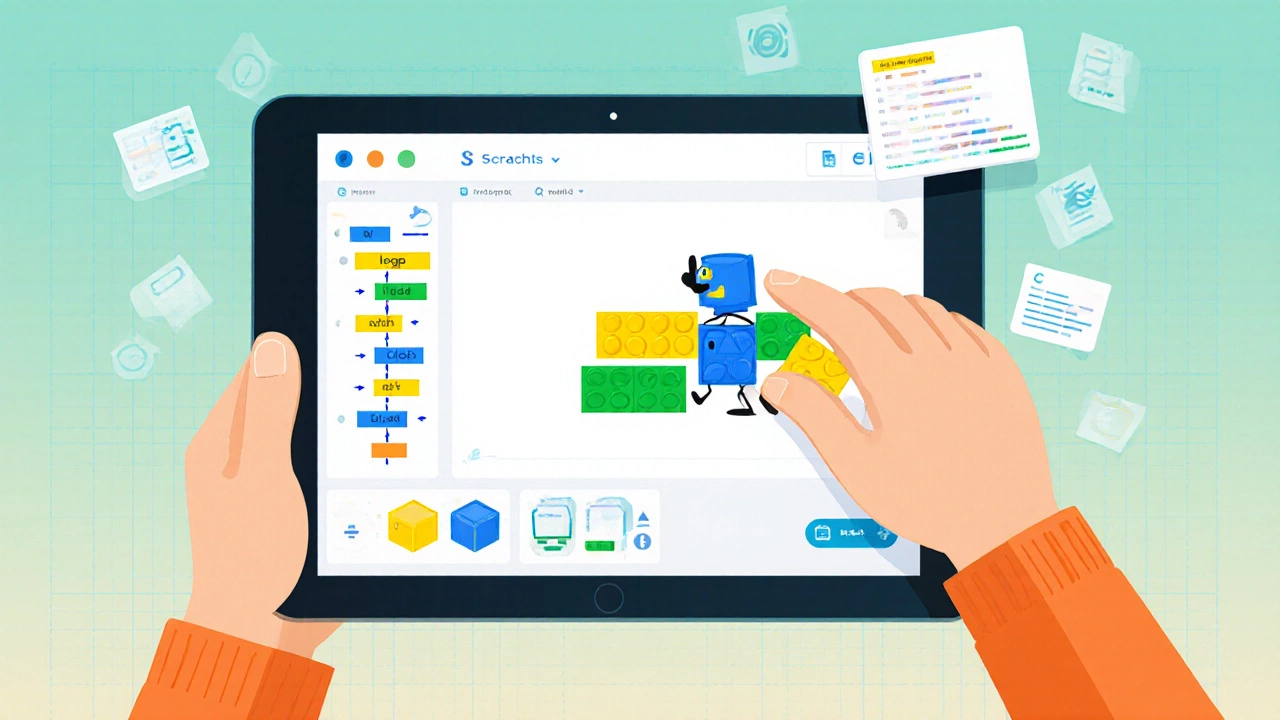Coding Path Finder
Recommended Path:
Suggested Learning Approach:
Key Skills to Focus On:
When you hear the word Programming is a process of creating step‑by‑step instructions that tell a computer what to do, the first thing that often pops into mind is a maze of equations. That image scares many people who aren’t comfortable with numbers. The good news? You can absolutely learn to code even if math feels like a hurdle. Below we break down why math isn’t the only ticket to software, what skills you should focus on, and how to pick a path that matches your strengths.
Key Takeaways
- Logical problem‑solving beats arithmetic for most coding tasks.
- Basic math (addition, subtraction, percentages) is enough for everyday programming.
- Choose languages and domains that minimise heavy math, such as web development or scripting.
- Practice computational thinking through puzzles, not equations.
- Build a portfolio to prove you can deliver, regardless of your math background.
Why Math Isn’t the Gatekeeper
Many newcomers think the Math is the core of any programming activity. In reality, most code you write deals with Logic - the “if‑then‑else” decisions that guide a program’s flow. Logic is a skill you can train without solving differential equations.
Consider this: a simple website that displays a list of products uses HTML, CSS, and a bit of JavaScript. The only math you’ll ever need is to calculate a discount percentage or format a date. No linear algebra required.
Core Skills That Matter More Than Arithmetic
Below are the abilities that have a bigger impact on your ability to ship software than raw math talent.
- Computational thinking - breaking problems into smaller, manageable pieces.
- Algorithmic reasoning - understanding the steps a program must follow to reach a solution.
- Debugging - the art of locating and fixing errors, which relies on pattern recognition more than formulas.
- Version control - tracking changes in code, a habit that keeps projects organized.
- Communication - explaining what your code does to teammates or clients.

How to Build Programming Confidence Without Heavy Math
1. Start with visual languages. Platforms like Scratch or Blockly let you drag blocks together, focusing on flow rather than numbers.
2. Pick a low‑math language. Python, JavaScript, and Ruby have syntax that reads almost like English and are widely used in domains that rarely touch advanced math.
3. Work on real‑world mini‑projects. Build a personal budgeting tool, a simple blog, or a to‑do list app. These projects reinforce concepts while keeping calculations minimal.
4. Use coding puzzles. Websites such as LeetCode’s “Easy” section, Codewars, or HackerRank provide problems that test logic without demanding heavy math.
5. Pair program. Watching a more experienced coder walk through a problem demystifies the “thinking” part and shows you that mistakes are part of the process.
Choosing the Right Learning Path
Below is a quick guide matching common coding tracks to their math intensity.
| Domain | Typical Math Needed | Good Starter Languages |
|---|---|---|
| Web Development (front‑end) | Basic arithmetic, percentages | HTML, CSS, JavaScript |
| Web Development (back‑end) | Simple math, data formatting | Python, Ruby, Node.js |
| Mobile Apps | Basic geometry for UI layout | Swift (iOS), Kotlin (Android) |
| Data Analysis | Statistics, linear algebra (moderate) | Python (pandas), R |
| Game Development | Geometry, physics formulas (higher) | C#, Unity |
| Machine Learning / AI | Advanced calculus, linear algebra (high) | Python (TensorFlow, PyTorch) |
If math anxiety is your main concern, stick to the first three rows while you build confidence. You can always branch into data‑heavy fields later, once you’ve mastered the programming fundamentals.
Real‑World Jobs That Need Little Math
Even employers understand that many software roles are more about creating user experiences than solving equations. Here are a few positions where math is a nice‑to‑have, not a must‑have.
- Front‑end Engineer - focuses on UI, CSS, and JavaScript interactions.
- Content Management System (CMS) Specialist - configures WordPress, Shopify, or Drupal sites.
- Automation Scripter - writes small scripts to move files, send emails, or generate reports.
- Quality Assurance (QA) Tester - designs test cases and automates them with Selenium or Cypress.
- Technical Support Engineer - helps users troubleshoot code issues, often using existing documentation.

Tips to Keep Math Anxiety at Bay
- Reframe the problem. Instead of seeing a loop as “a math equation,” view it as a repeat‑until‑condition scenario.
- Use visual aids. Draw flowcharts or use online simulators to see how data moves through your program.
- Chunk calculations. If a formula pops up, break it into single‑step variables - the code becomes easier to read.
- Leverage libraries. Most languages have built‑in functions for rounding, converting units, or handling dates. Trust the library instead of reinventing the math.
- Practice mindfulness. A quick breathing exercise before tackling a tricky bug can lower stress and improve focus.
Next Steps: From Theory to Practice
1. Pick a starter tutorial that promises a “no‑math required” label. Many free resources on YouTube or freeCodeCamp highlight this angle.
2. Set a tiny goal - for example, build a page that shows today’s date. Celebrate the win and add a small feature each week.
3. Add a line of code to a public repository on GitHub. The act of sharing proves you’re moving forward, not stuck on theory.
4. Join a community forum (Stack Overflow, Discord coding servers). Ask questions about logic, not math, and you’ll see how quickly people help.
5. After a month, revisit the math you used. You’ll notice it’s a fraction of what you feared, and you’ll feel more confident to explore new domains.
Frequently Asked Questions
Do I need to know algebra to start coding?
Algebra helps with understanding variables, but you can start with visual tools or simple scripts that treat variables as placeholders. Most beginners pick up the necessary bits on the job.
What programming language is the most beginner‑friendly for someone weak in math?
Python tops the list. Its syntax reads like plain English, it has a massive library ecosystem, and many introductory courses deliberately avoid heavy math.
Can I become a web developer without ever using calculus?
Yes. Front‑end and most back‑end tasks rely on layout, API calls, and data formatting - none of which demand calculus. You’ll only encounter calculus in niche areas like graphics engines.
How do I handle a situation where a problem seems to need math I don’t know?
Break the problem into smaller steps, search for a library that already implements the math, or ask the community. Often a pre‑built function saves you from rewriting the formula.
Will my lack of math limit my career growth?
Not necessarily. You can progress to senior roles focused on architecture, product, or team leadership, where strategic thinking and communication outweigh pure math.
